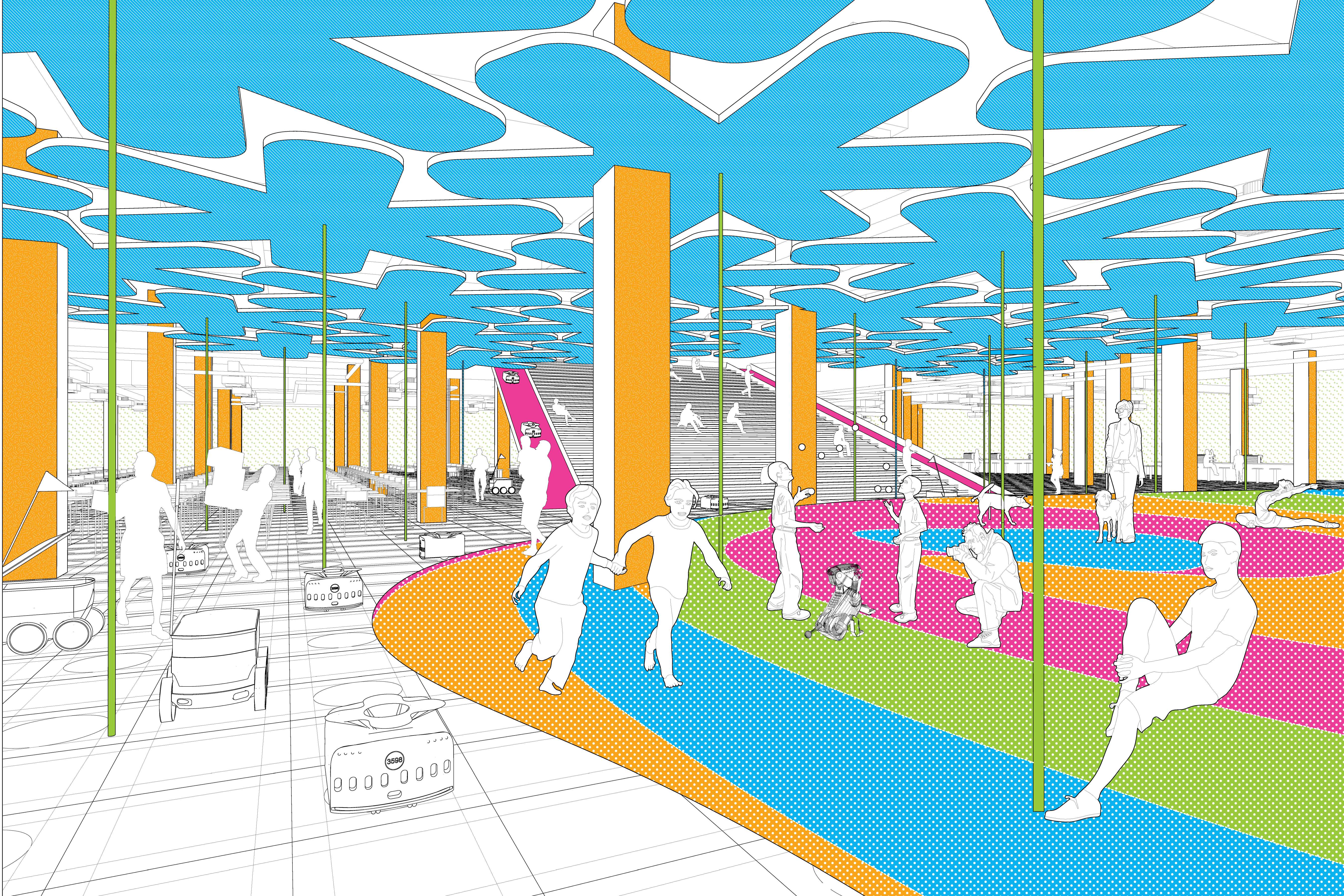Repurposing the City
After Retail and After Work
Team: Clare Lyster with Donovan Aranda
One of the most significant implications of logistics on society is the reduction of work. Automation that began in the 1960s is now amplified by logistical systems and smart technologies from algorithms to smart equipment. A world without (or reduced) employment is now a plausible reality. In tandem with shifts in production and employment, are new retail routines. Brick and mortar stores are closing because of competition from e-commerce. Giant malls in the exurbs can be removed (they are erected cheaply and quickly) or in some cases given over to new uses. In California, retrofitting malls to housing is considered a viable answer to the housing crisis. But what of our old inner cities, where stores define the streetscape and inhabit old historic structures? Busy shopping streets, once a hive of activity, are transforming as citizens conduct all their shopping online. But out of the old, new things emerge. Large department stores and ground-floor retail, once the mainstay of urban renewal, are reclaimed as collective leisure space for the underworked (possibly bored) post-Fordist logistical subject as well as new forms of logistical occupation from work-sharing to food incubators, from driverless car terminals to the more surreal landscapes of desire, boredom and consumption. Logistics produces a new streetscape.



